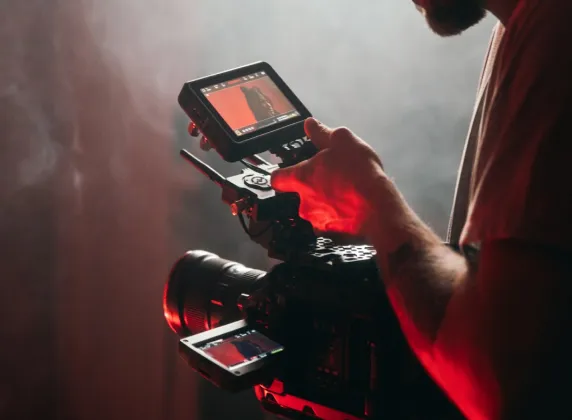

The year 2020 taught us many lessons, and the most significant one is the value of data. The ability to handle data correctly has become even more crucial as our lives are increasingly measured in bits and bytes. What does this mean for the future? More than it might seem at first glance.
To register for the rapidly growing social network Clubhouse, you need to grant the app access to your address book. This is one example of how the new internet economy is being built. According to Kantar, 51% of marketers today lack sufficient data to make confident decisions, and they are willing to go to great lengths to acquire the missing information.
In the world of modern internet business, the problem is no longer access to capital—investors are ready to fund companies that haven’t even figured out how to turn a profit yet. According to Pitchbook, only one in three tech startups that went public in the last decade is profitable. The rest are willing to sacrifice cash flows for data flows. The main goal today is to gather as much relevant data as possible and convince users that they benefit from this exchange. Clubhouse, currently a hot topic, exemplifies the remarkable success of this model. However, we are not easily surprised by such mechanics. In early 2018, the GetContact app went viral in the Ukrainian internet space, allowing users to see how their and others’ phone numbers were saved in address books. This required users to sacrifice their own private data. For millions of users, curiosity outweighed all rational arguments.
According to Kantar, in 2021, we will see not only a competition for better data collection but also significant advancements in data analytics platforms. Brands and companies will need to understand the meaning behind every click—what emotions or purchasing intentions it conveys. Data analysts, the professionals who transform raw data into actionable business decisions, will become the most sought-after experts both within the tech sector and beyond.
The upcoming year will be particularly intense for the advertising industry. In 2020, it faced unprecedented upheavals—advertising expenditures plummeted sharply for the first time in a long while, and some brands temporarily halted all campaigns. This shock therapy had a lasting impact. According to Kantar, more than half (53%) of marketers now plan to experiment with new strategies to increase the reach and effectiveness of their campaigns. This is an unprecedented level of enthusiasm for the industry. Furthermore, an overwhelming majority (96%) of professionals believe that the pandemic will drive strategic changes. The essence of these changes is already in the air.
Get ready, because the acronym ROI (Return on Investment) will be haunting you from all directions. Traditional faith in the effectiveness of a particular type of advertising is becoming obsolete. If a media platform cannot reinforce its status with data or provide better value in customer interaction, it automatically falls out of the modern advertiser’s media mix. That’s why TikTok and Instagram shone even brighter during the pandemic. They outgrew the status of trendy, unexplored platforms and demonstrated their effectiveness at a time when users were fully immersed in the online world. Ukrainian businesses such as Allo, Rozetka, Citrus, and Foxtrot advertised on TikTok.
If the term “antifragility,” introduced by Nassim Taleb, was regularly illustrated in the mid-2010s, the word of the new decade is “non-obviousness.” To reach modern individuals bombarded with hundreds of messages, you need to seek original solutions and personalize your approach. Technologies enable this. For example, the Ukrainian-developed app Reface can swap faces in any video—recently, monobank refreshed its referral program with their help. Algorithms generated millions of personalized invitations, although such video manipulations previously required professional work.
Another example of how technology can surprise is the Ukrainian startup Respeecher, which can clone any voice. They worked on dubbing “The Mandalorian” series and created ads for the Super Bowl. All this is an example of synthesized media, created at the intersection of human capabilities and data processing. Get ready, as they will only proliferate more and more. And it’s not just about the novelty of the approach. Advertising campaigns with a strong emphasis on the technological component are much easier to control than pure human creativity. This is one of the main problems of the modern internet—according to Kantar’s estimates, 41% of marketers are concerned that internet platforms cannot balance the right to freedom of speech with protecting users and brands from attacks. Reputation today has become a more unstable asset than ever before.
In Ukraine, there are also plenty of examples where bloggers lost all sponsorship contracts due to sharp statements. Conversely, some sharply gained media capital due to ill-considered actions by the brand—like YouTuber Tyler Anderson, who received massive support amid a scandal involving “1+1” TV channel. The holding accused him of copyright infringement and requested the channel’s blockage, but eventually faced public criticism and withdrew its claims.
What does this kaleidoscope of changes mean for us? Firstly, life will become even more dynamic, and the pace of innovation will accelerate. Companies will have more and more data at their disposal, and they will learn to manage it better. So, there’s no room for complacency—formats and approaches to information delivery will rapidly evolve. Just as we were getting used to organizing files, live audio discussions replaced them. No sooner had we grasped the format of quick videos than they were immediately replaced by AR installations. This trend will continue across numerous industries.
The year we spent in lockdown can hardly be called good. However, it certainly became revolutionary.



